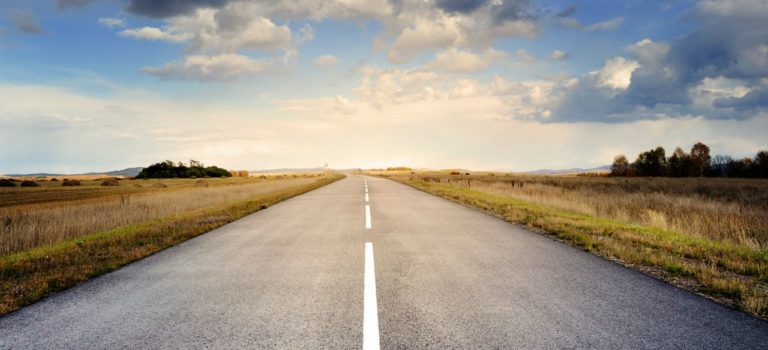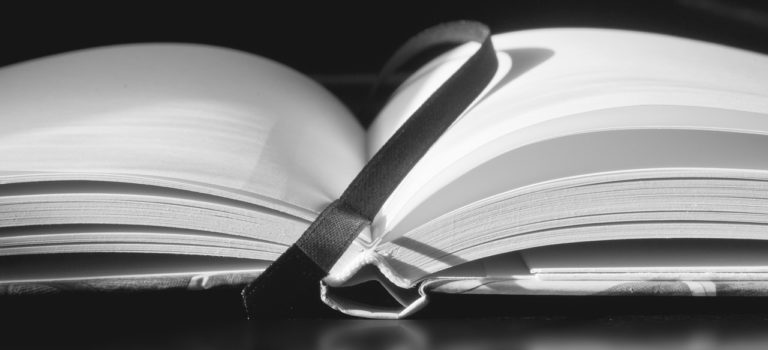When Superstition Review asked me to write a post for this blog, I wanted to write something related to my essay, “On Being (Lost),” which is about distance and direction and the longing to leave. I thought I’d write a craft essay about how to create distance in writing, and as a way to begin thinking through the idea, I performed a Find search in every essay I’ve written, looking for lines with one of these five words—road, distance, missing, highway, and longing—copying and pasting each one into a document. As a way to look even closer, I printed out the pages and grabbed the scissors, separating each line into a single strip of paper and then I sat down and arranged them into categories, but then, I wondered if they might turn into an essay of their own, so I started arranging again, bringing the lines into conversation, losing many of them along the way because they were redundant or weren’t engaging with the concepts in interesting—or syntactically compelling—ways. My intended craft essay gave way to this compendium, and each fragment here is a line from one of my essays. The exercise helped me to see my work from a distance, to think about how and why it’s a recurring theme in my work and to think about how I can push myself, in future essays, to find new ways to write the distance.
I.
Out here, the triple train tracks run alongside the road.
I pulled up to the hotel sun-tired and road-weary, thirsty for the booze I needed to put at least a hundred more miles between me and that brick two-lane out of Lubbock.
Deeper Into Texas, deeper into distance, deeper into the trouble I was dragging through the desert like a carcass.
Maybe I needed to know what I would choose if another reality came into view, like a gas station on a long, empty road.
Back then, a bottle of Barefoot Chardonnay cost me around ten bucks.
He was from down south, a town called Marathon, dust and tumbleweeds, rust and empty roads, store-front signs that whine in the grit of the wind.
We watched the mountains in the distance, counting the headlights of cars blurring
the curves. Those lights reminded me of something, but I couldn’t name it.
It was like sitting inside the missing.
II.
I don’t think it’s ever been about missing him at all.
I was like those tumbleweeds in Marathon, always tossing myself toward some rusty-
edged road.
Maybe it’s dust from another summer, the one when he and I stood in a Colorado river, sand swirling into a cloud before setting into us so that we would always carry each other across the distance. Maybe what I carry is the distance.
Empty
downtown buildings, train tracks, Highway 82 out of Lubbock—a road
I wore out in my twenties
every time I tried to unravel myself from that town.
It’s all thunderstorms in the distance.
I don’t want to lose my capacity for longing, for missing, for wondering what might be, for yearning for what has come and gone before I had the chance to save it. I want a window to stare out of or a dark bar where I can buy my dissatisfaction another drink.
I write because I used to be someone I miss.
III.
Sometimes a direction calls us from the distance, and for me it’s always been west.
When I think of October, I think of deep ochre, a south Texas highway that traces the Davis Mountains, a fire’s shadow undulating against the limestone laccoliths of Big Bend at night.
Leaves bring back a lost season, and I keep writing, building a map so that I can spread out the pages and point to a phone call, a room, or even a breeze, and say, here.
IV.
Give me distance, and I’ll give you an essay. Here:
She once drove that truck all the way to some New Mexico road and pulled over at a gas station to wonder why the pay phone she once called him from had been ripped out, holes where there had once been bolts rusted dark.
Wind in the distance.
She had a flat highway inside her, a sign that told her she was 381 miles from some no-account town.
Her missing him was like an oversized map spread out across the floor.
V.
I understood that, understood that driving hard down one dust-soaked road after another will never make a difference.
Days and nights almost seem wasted, at least borrowed, when you’re counting down to leaving. Not knowing where you’re leaving for makes those days and nights a map of creases that have worn away entire cities.
There’s a small bus center off the highway, where a Greyhound could take me back to all the cities I’ve pulled away from so that I could climb the steps of a post office or duck into a wood-floored diner or stop by to see if the same clerk’s behind the counter.
I like these nights, when the Chardonnay climbs the rungs of memory to the roof of the building, and I can see the city the way it was then.
In my mind, those moments shimmer the way hot air on roads bends light.
The road I keep trying to lose is in South Fork, where I once stood in front of a house willing the man I had known there—the one who had long ago moved away—to step out to the front porch.
I have empty streets inside me. Streets that have built cities, maps of trouble.
I imagine pushing the pedal all the way down that flat road, the horizon a razor, the pump of oil jacks a steady lulling of the landscape.
The pull of the wrong direction, so I took off and drove west into New Mexico until my Jeep rumbled a dusty road toward a bottomless lake.
I do remember leaving town the next day, chasing the distance, the space I couldn’t see, the grit in the wind. And I can admit it now, I’ve always stayed gone.

